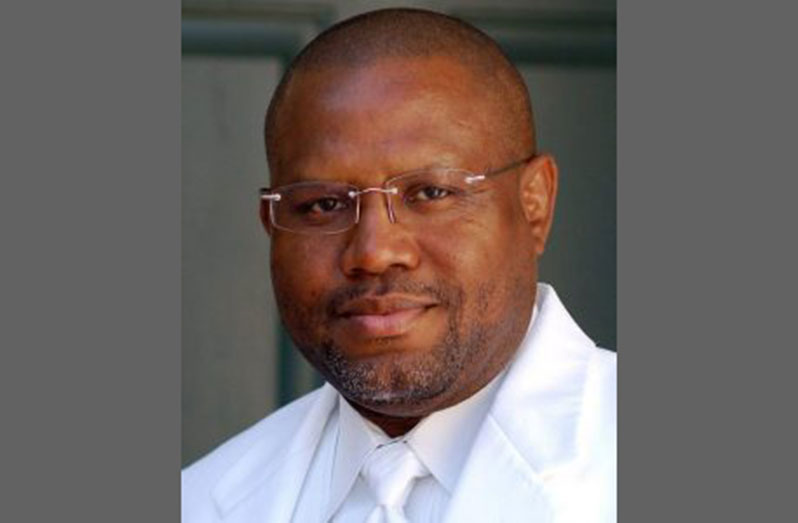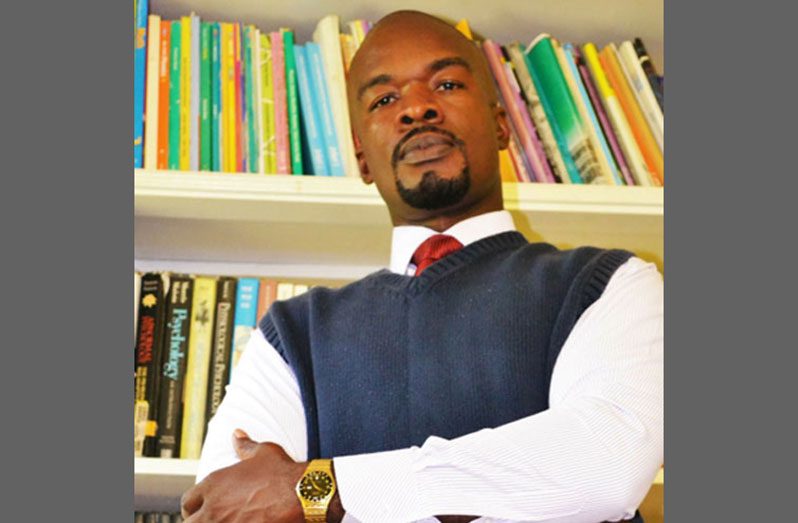— say psychologist, ex-offender turned rehabilitation expert
WITH the government advancing its agenda to tackle crime, President Dr. Irfaan Ali has recently announced that his administration is pursuing a novel concept which would effectively offer criminals an opportunity to turn their lives around and live a “decent life.”
“Once you want to change your life, we want a discussion with you. We want to talk to you to give you an alternative pathway to earning an income and living a decent life,” the President announced during an address to the nation on November 12, 2021.
Highlighting that “the life of crime is short-lived,” the Head of State made it clear that his administration is desirous of working with persons engaged in crime to provide them with “a better option at life” and will be pursuing a “confidential” programme to “directly interact with those persons.”
For context, the term criminal is most commonly used to describe a person who has been legally convicted of a crime, or generally, to describe someone who has committed a crime and has not been caught. Therefore, a programme of this nature will have to take both cases into consideration.
The reforming of criminals often targets prisoners and ex-offenders through their participation in various programmes to foster their rehabilitation and reintegration into society; targeting persons who have not yet been charged and convicted, but who are engaged in criminal activity would be fairly new to the country.

Speaking to the Guyana Chronicle, Pastor Wendell Jeffery, an ex-offender and founder and president of the Practical Christianity Ministries and University of Guyana (UG) Lecturer and Psychologist, Wil Campbell, shared an upbeat view of the novel programme mentioned by the President.
Practical Christianity Ministries is registered in Indiana, USA and Guyana and provides social services to ex-offenders and recovering addicts
The consensus among Jeffrey and Campbell is, if properly executed, the programme can tackle crime at its roots and achieve the desired results of significantly reducing the country’s crime rate.
ENCAPSULATES DUAL APPROACH
Jeffrey, who has been working with ex-offenders for over 20 years, explained that crime-fighting must be tackled through a dual approach — preventative measures and rehabilitative measures — and opined that the President’s proposed programme seems to encapsulate both, which would lead to success.
He explained that in establishing such a programme, the specifics must be thoroughly contemplated and should involve competent personnel with the requisite expertise who have been involved in the field of work to be able to evaluate the participants of the programme, before specific action is taken to render assistance.
“A lot of these guys [criminals] might think they want to work, but if they are addicts, they’re going to use the money they get from work to buy more drugs and then you create more problems. We need to know, are you addicted? Do you have a learning problem? Do you have a mental issue?” he said.
Jeffrey opined that a programme of such nature could involve persons calling a confidential hotline which would direct them to a relevant authority that would seek to assess what crimes they have been involved in, their characters and social situations and to figure out what is necessary to render assistance.
“I could tell you, if a mother knew that there is a programme that she could send her 14,15,16,17 years old son to because she saw that he’s smoking weed and he’s buying things but not getting the money through legal means, the mother would call and say I have a son and say I suspect, a sister would call,” he said.
Jeffrey through his organisation has been helping to reform ex-offenders through vocational training, housing, education, substance abuse and spiritual formation (VHESS).
CRIMINOGENIC NEEDS
“Those are what we call criminogenic needs and in a nutshell this programme should be set up to deal with those criminogenic needs, because what we find is if you answer those questions for the individual is what we called a holistic approach and that person is less likely to offend,” he said.
He highlighted that housing, especially, plays a major role in crime, noting that environments directly contribute to a person’s involvement in criminal activity; in these regards, his organisation, Practical Christianity Ministries, has been working to set up living accommodation in Guyana.
“Persons could call and say I don’t have anywhere to live, I’m living in an area that is prone to crime and I want to change, do you have any temporary place that I can go? So, we’re doing this transitional housing with the blessing of the government,” he said.
Speaking to ‘criminals’ who have been released from prison, Pastor Jeffrey explained that those ‘criminals’ would have been “institutionalised” while behind bars, noting that if those persons are thrown into the world, they would not be able to function as persons who have not been institutionalised.
To address that, he highlighted that in some developed countries there are “half-way houses or transitional houses” where ex-offenders can go to become “climatised,” and are able to wean themselves back into society.
NON-TRADITIONAL APPROACHES
Campbell shared similar comments. He related that he is “excited to learn” that Guyana is looking to implement non-traditional approaches to crime prevention and crime reduction, a move away from the orthodox method currently being used, that is, the prison system.
“If we have a programme that is aimed at reforming people and helping them modify their behaviour, then that I think would be much more effective than the system we currently have,” he said.
“A lot of ‘criminals’ would do things differently, would live different lives, if they felt like they knew a different way. A lot of times we assume that people know what is right, and people know how to do what is right, and so any programme that would want to make people aware of what is right, and to teach them how to do that would be helpful,” he added
Like Jeffrey, Campbell also emphasised that such a programme should he “holistic” and encapsulate “the whole man”, namely his spirituality, social setting, mental state and educational background.
“All of the studies have found that when criminals receive an education, whether it be vocational or academic, they don’t return to crime. The recidivism rate among those who are educated after conviction is almost zero,” he added.
SKILLED PEOPLE
In setting up such a programme, he advised that “skilled people” should be engaged, especially professionals who understand the criminology and psychology of human behaviour.
“Make sure that you have the right people for the job, make sure that if people are skilled in things like behaviour modification, dealing with deviance, that kind of thing… because these are your normal group of people you’re working with here now,” he said.
He added: “You’re not teaching people in school here; you’re teaching people who would get up and snap your neck if you get it wrong. So, you have to have people who are properly equipped with the proper skills to deal with this population, this is not your usual schoolchild.”
The psychologist related that the programme will require behaviour modification and even trauma therapy, as most ‘criminals’ have witnessed much cruel and devastating events during their lives and would need to unlearn those behaviours and to help themselves cope.
Speaking to the aspect of persons who have not been charged and convicted but are labelled criminals, Campbell noted that one cannot be sentenced without due process. However, if caught committing a crime, he explained that options should be extended to persons whereby they can be involved in a rehabilitation programme.
He noted that persons walking off the street and submitting themselves to such a programme is “a little dreamy,” unless there is a strong motivational system.
“Because to label yourself a criminal, that stigma, that is not something even career criminals want to walk around saying. So, I don’t know how effective that would be, but I know it can very well work for people who have passed through the system,” he said.
He recommended an “immersive approach” such as a “live-in system,” so that persons would not return to their environment after a day of learning how to unlearn their ‘criminal behaviour’.
“If you could immerse somebody in something for like nine months, as a minimum … you go through a system of behaviour modification, learning, spiritual formation and then when you are released, you’re released into an environment that supports the new behaviours that you’ve learned; I see it, as being more effective,” he said.
The Government of Guyana has been steadfast in its efforts to introduce rehabilitative approaches to tackle the country’s crime and recidivism rate.
In September, 2021, Minister of Home Affairs, Robeson Benn, announced that his ministry is currently devising a programme titled, ‘A Fresh Start’ aimed at rehabilitating prisoners and to provide them with the requisite skills for their reintegration into society when they leave prison.




.jpg)









